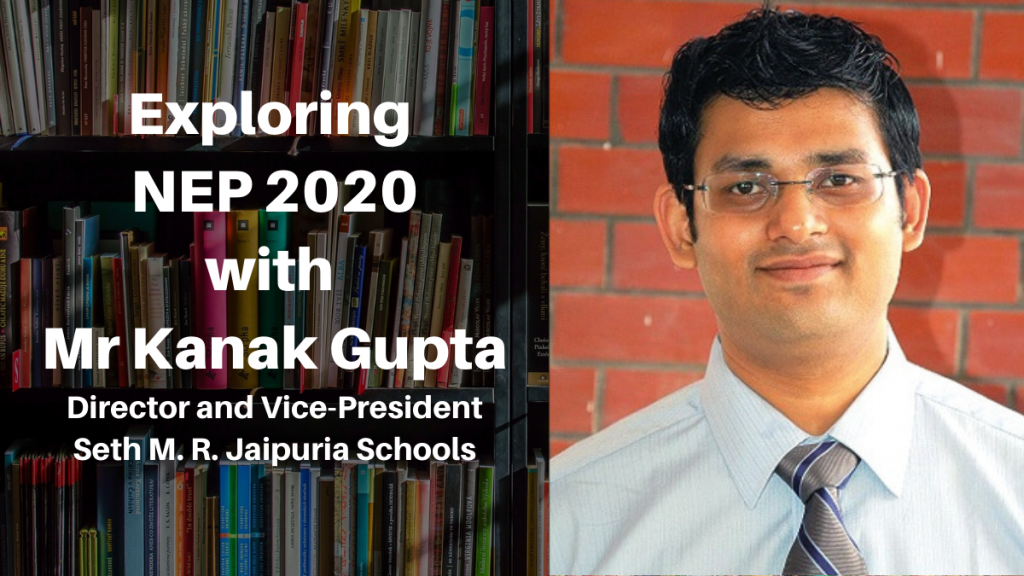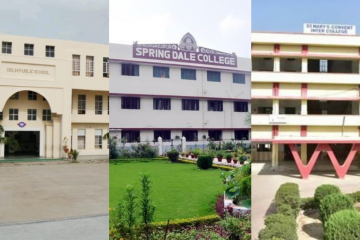Editor’ s Note: This article is part of a series of articles, podcasts and videos where Uniform Application asks various experts from the Indian education space about their thoughts and opinions on NEP 2020.

Q.1 Let’s start on a lighter note, what is your favourite thing about NEP 2020?
My absolute first reaction to the NEP is this: IT’S ABOUT TIME! God knows how many ‘expert’ panel discussions we’ve done on the drafts, at least there’s some movement now. On a more serious note, my compliments and tip of the hat to many, MANY people who have tirelessly worked towards finalization of this document. The unsung heroes, sort of.
Q.2 NEP says that education till class 5 shall be in regional language/ mother-tongue/ home language whenever possible, what are your thoughts about this?
Teaching students in Mother Tongue (wherever possible) will help inculcate human values in them. I’m happy about the introduction of mother tongue in primary grades. Having said that, I am keen to see how does the implementation of this happen. In Europe, for instance, the primary education is in the mother tongue of the child. However, India as a country changes every 100 kilometres, and different languages, dialect will make implementation tough.
Q.3 Some people are worried that English will lose its significance in primary and secondary education because of this policy, are their fears justified or is it too early to say?
Teaching in the mother tongue in primary years promotes easier learning, and the policy notes that this should proceed hand in hand with teaching of other languages, including English. This has always been a provision within the RTE too if I am not mistaken. Significantly, the availability of trained teachers to impart multi-lingual facilitation would be challenging.
Q.4 Students are to be given vocational training as per this policy? What is your opinion on this? Will this be beneficial or serve as a distraction from academics?
I feel it’s a multi-pronged strategy and makes it better for getting children ready for future circumstances. I’m a big believer of collaborative projects and learning by doing. Kudos to the makers thinking about that too. Widening access by including vocational training will be the delta we have been striving for. Skilling, India is critical.
Q.5 Since exams will become infrequent, what will school primarily use to judge the performance of their students, especially in earlier classes?
Let’s take the example of statewide or nationwide exams at multiple grades. We know that students in India lag behind the learning outcomes in the early years of their school education. In the current system, there is no standard benchmarking of learning till class 10. This is far too late. The NEP introduces the concept of benchmarking at class 3,5 and 8 through a central exam. This will this help us identify the students who need help in time and address the learning gap rather than wait many years and do a post mortem of their failure in class 10. It will also provide better learning-oriented information to parents making school choices at lower grades, thus adding transparency to the system.
Q.6 Some parents are still confused about how 5+3+3+4 is different from 10+2 in a practical sense, and whether it will have any real, visible effect, what are your thoughts on this?
The implementation of this policy is still dynamic and allow for adjustments to be made. The profile of the learner has undergone a tremendous change with reduced attention spans. The teacher needs to adapt to these changes. Students need to be made to participate in the classroom a lot more today than in yesteryears to maintain their level of engagement. This will ensure that they are more ready for a volatile 21st century. Lesson planning and benchmarking learning outcomes also need to be done in a more scientific and organized manner. It will take time, but I feel it’s a step in the right direction to break up benchmarking levels. However, I strongly also feel that assessments should not be punitive or judgmental but specific and personal to the child. Otherwise, we are simply promoting rat races.
Q.7 One thing that you believe should have been added to the NEP?
I feel it should have been named India Education Policy. Today, online education has opened up new opportunities for continuous teacher development. During the last few months, teachers have gotten used to teaching and learning online. We must make use of this newly learned skill in order to keep them growing as educators.
Q.8 By when do you see the NEP reaching an implementation phase in your school and have you started planning for it
I strongly feel that the NEP 2020 is the starting point of the reforms, not the endpoint of the reforms. At Jaipuria, for us, the child is always at the centre of the teaching-learning process, and we believe in learning by doing. 21st-century skills cusped with the wisdom of seers is what drives our teachers. In that way, we are pretty much in sync with asks of the NEP. I feel that the starting point of the document is great, and let the granular planning and implementation work be done by Schools and educators.
About the author
Kanak Gupta is the Director and Vice President of Seth M.R. Jaipuria Schools. He possesses over eleven years of experience in consultancy and research in the area of globalization, brand building, startups and business best practices. He has experience in well known multi-nationals as well as boutique firms in UK, Germany, UAE and India. He is also a co-founder of Theatrecian, one of the most prolific theatre and cinema groups in Kolkata and Mumbai.



0 Comments